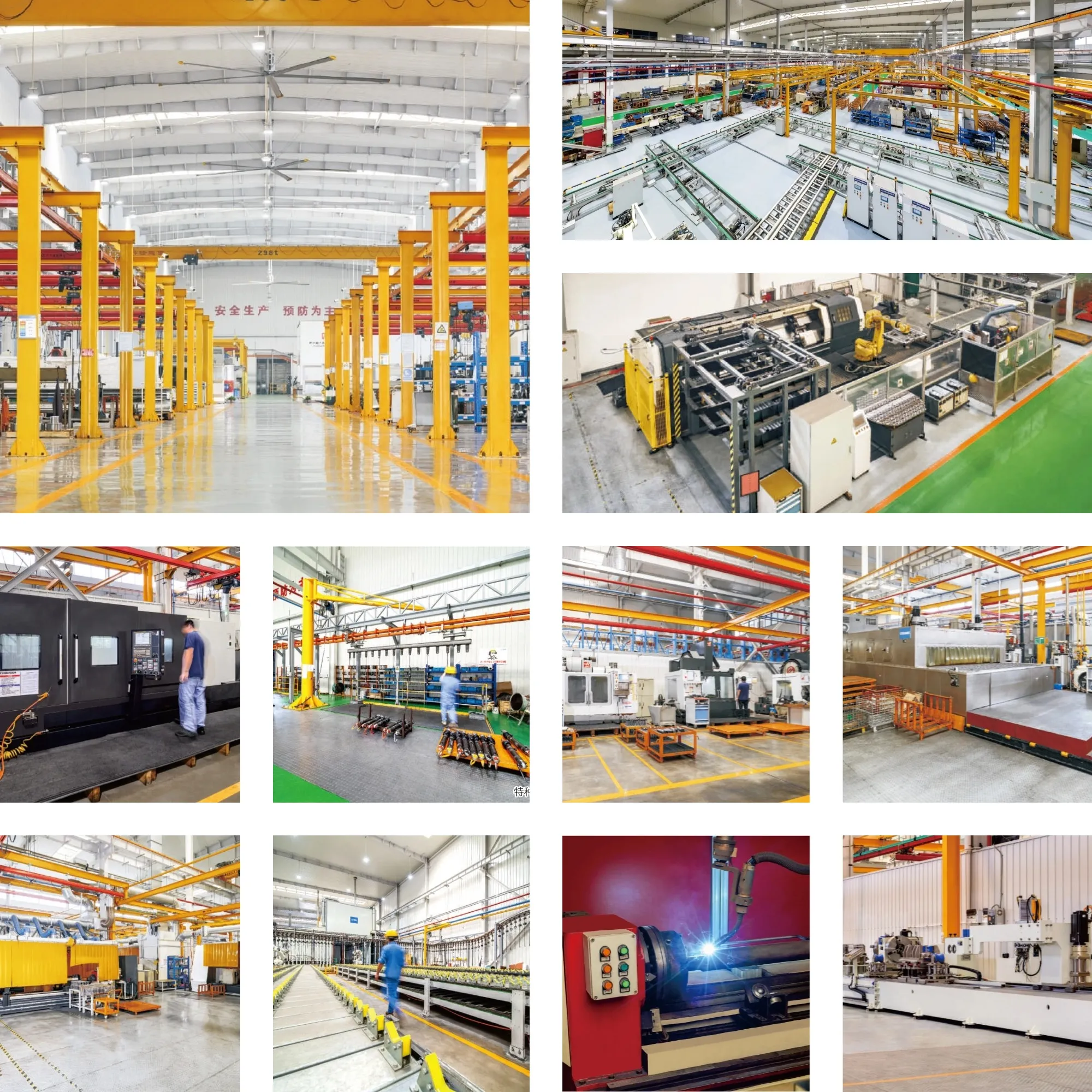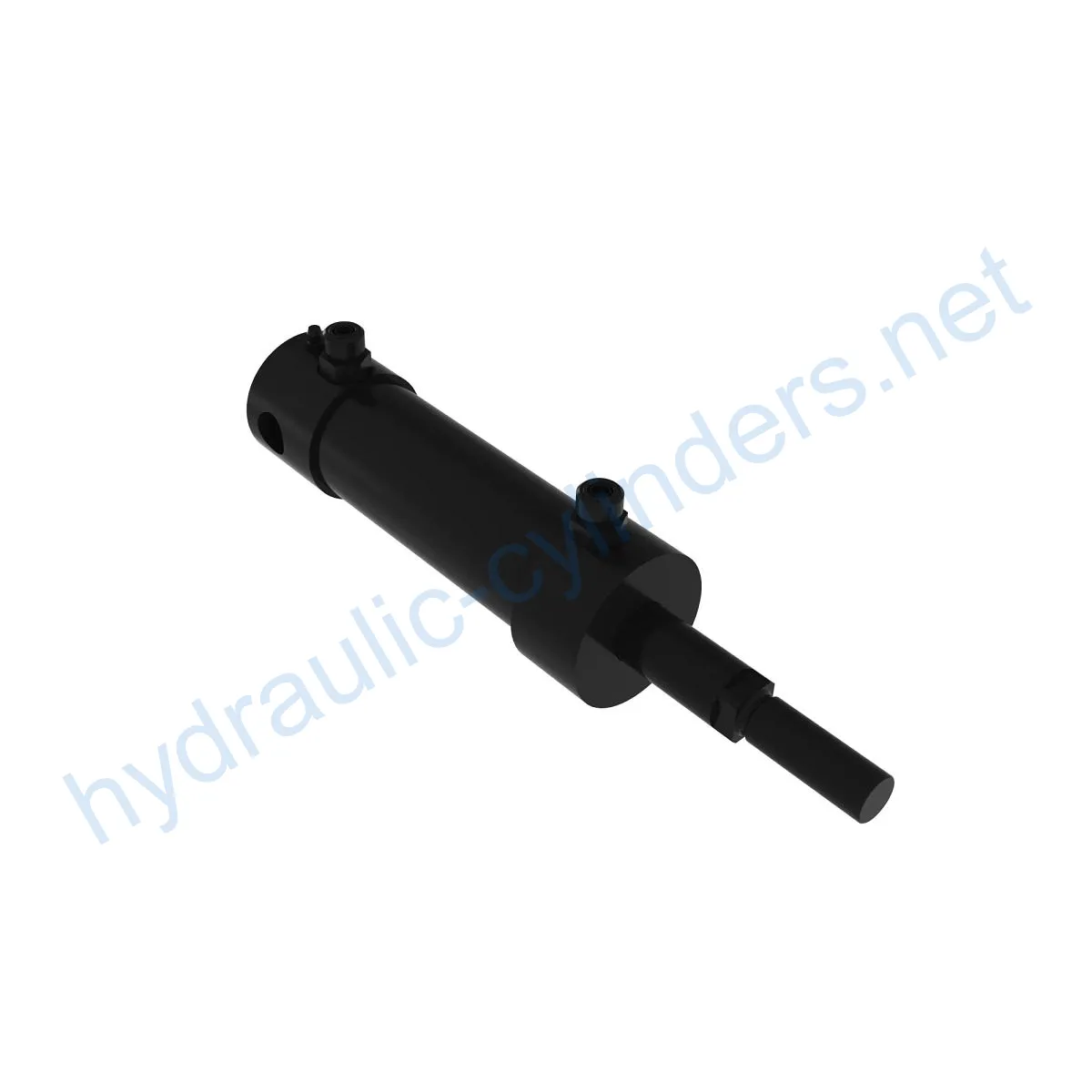Replacement Of AHC18725 Hydraulic Cylinder
Yhtenä hydraulisylinterien valmistajista, toimittajista ja mekaanisten tuotteiden viejistä tarjoamme hydraulisylintereitä ja monia muita tuotteita.
Ota yhteyttä meihin saadaksesi lisätietoja.
Posti:sales@hydraulic-cylinders.net
Valmistaja toimittaja viejä hydraulisylinterit.
Product Definition
The Replacement Of AHC18725 Hydraulic Cylinder is a vital component of hydraulic systems. It serves as a linear actuator designed to provide unidirectional force through a unidirectional stroke. This cylinder is a perfect replacement for John Deere AHC18725 Hydraulic Cylinder.
Product Specifications & Models
The Replacement Of AHC18725 Hydraulic Cylinder has a Weight of 7.96 lb, Height of 3.5 in, Width of 3.5 in, and Length of 14 in. It is compatible with the following models: 6700A PRECISIONCUT, 7500A E-CUT, 7500A PRECISIONCUT, 7700A PRECISIONCUT, 8700A PRECISIONCUT, and 8900A.
Product Features
Enhanced Equipment Performance
Replacing damaged or worn-out hydraulic cylinders can restore equipment’s normal operation capacity and ensure performance in various applications.
Increased Safety
Periodic replacement of hydraulic cylinders can reduce safety hazards caused by cylinder failures and ensure the safety of the operators and the equipment.
Overload Protection
New cylinder designs usually consider better overload protection mechanisms, enhancing safety.
Quick Installation
Modern hydraulic cylinders are designed to be easy to install and replace, reducing downtime.
Standardized Components
Many hydraulic cylinders are standardized products, making it easy to obtain replacement parts in the market.
Applications
The Replacement Of AHC18725 Hydraulic Cylinder can be applied in various machines, some of which include:
- Excavators: replacing hydraulic cylinders in the boom or bucket after prolonged use or overload can restore normal operation.
- Cranes: replacing the hydraulic crane boom cylinder after frequent lifting and lowering processes can ensure safety.
- Tractors: replacing front-end loader hydraulic cylinders after continuous lifting and tilting operations can prevent leakage or performance decline.
- Harvesters: replacing hydraulic cylinders timely in high-pressure hydraulic systems can maintain efficiency.
- Automated production lines: hydraulic cylinders control robot arms and other automation equipment. Promptly replacing faulty cylinders can prevent production efficiency reduction.
- Die-casting machines: in high-pressure and high-temperature environments, hydraulic cylinders may experience performance deterioration. Regular replacement can ensure product quality.
- Mining equipment: hydraulic cylinders are used to lift and move heavy objects in mining equipment. Regular inspection and replacement are necessary to avoid equipment failure due to harsh working environments.
- Bulldozers: worn-out hydraulic cylinders in bulldozer pushing arms can lead to a decline in pushing capacity. Prompt replacement can keep the working efficiency.
Maintenance and Repair
Common maintenance tasks for hydraulic cylinders include regular inspection, adequate lubrication, seal replacement, and calibration check. Proper installation, lubrication, and adjustment are essential. During the installation process, the cylinder should be correctly aligned, and proper installation brackets should be used to secure the cylinder. Recommended inspection, repair, and replacement procedures are available, along with replacement parts and rebuilding services. The following are suggested maintenance and repair tips:
- Regular inspection: inspecting hydraulic cylinders for potential problems before they escalate is critical. It is essential to look for any signs of wear or damage in hydraulic hoses, fittings, and seals, such as leaks or cracks.
- Adequate lubrication: lubrication is essential in hydraulic systems to reduce friction, prevent wear and tear, and increase service life.
- Seal replacement: seals play a vital role in preventing leakage, and it is essential to replace them at regular intervals with high-quality seals.
- Calibration check: calibration check is essential for accurate performance of hydraulic cylinders.
Safety Considerations
Hydraulic systems are prone to potential safety hazards, such as fluid injection, electrical shock, and burns. Therefore, safety measures must be taken into account when dealing with hydraulic cylinders. Some of the safety considerations include:
- Wearing personal protective equipment (PPE) when handling hydraulic cylinders.
- Keeping the workplace clean and tidy.
- Training workers to handle hydraulic systems safely.
- Ensuring that all equipment is locked out and tagged before maintenance or repairs.
- Following the manufacturer’s instructions on proper installation, operation, and maintenance procedures.
Troubleshooting and Common Issues
Common issues with hydraulic cylinders include leaks, insufficient power, and contaminated oil. Proper troubleshooting steps can help identify the problem and implement the necessary repairs. Some of the troubleshooting tips include:
- Check for any leaks or damaged seals in the cylinder.
- Inspect the hydraulic fluid level and quality, ensuring that it is clean and free of contaminants.
- Check the cylinder’s mounting brackets and connection points for any wear or damage.
- Ensure that the hydraulic system has enough pressure and flow rate to operate correctly.
- Look for any signs of cylinder wear or damage, such as scratches or dents.
Design Considerations
Bearing Capacity
The hydraulic cylinder’s bearing capacity is a critical design consideration as it must be strong enough to handle the load and absorb any shock or vibration that may occur.
Sealing Capability
The hydraulic cylinder’s sealing capability is essential as it prevents fluid leaks that could damage other components and harm the environment.
Durability
The hydraulic cylinder must be durable enough to withstand harsh working environments, such as high temperatures and pressure.
Safety
The hydraulic cylinder’s safety features, such as overload protection, must be considered in the design.
Maintainability
The hydraulic cylinder’s ease of maintenance must be considered in the design to ensure easy and timely repair and maintenance.
Sealing and Lubrication
The hydraulic cylinder’s sealing and lubrication system is critical to its performance and longevity. The proper selection of seals and lubricants can improve the cylinder’s resistance to wear and corrosion. Some of the factors to consider when selecting seals and lubricants include:
- Material compatibility: seals and lubricants must be compatible with the cylinder’s materials.
- Temperature range: the seals and lubricants must function correctly in the cylinder’s temperature range.
- Pressure: the seals and lubricants must be able to withstand the cylinder’s pressure requirements.
- Wear resistance: the seals must be wear-resistant to prevent leakage, and the lubricants must provide adequate lubrication to prevent wear.
- Environmental concerns: the seals and lubricants must be environmentally friendly and safe to use.
Installation Guide
Proper installation is critical for the hydraulic cylinder’s performance and longevity. The following are the recommended steps for installing the hydraulic cylinder:
- Ensure that the new cylinder matches the original cylinder’s specifications.
- Verify that the hydraulic system is clean and free of contaminants.
- Install the cylinder’s mounting brackets as per the manufacturer’s instructions.
- Align the cylinder according to the manufacturer’s instructions.
- Ensure that the cylinder’s hydraulic hoses are secure and adequately connected.
- Perform a calibration check according to the manufacturer’s instructions.
About Our Company
We are a leading manufacturer and wholesale distributor of hydraulic cylinders, providing a complete range of products for both domestic and international markets. Our company specializes in custom designs, has international certifications, advanced production equipment, and excellent after-sales services.

Author: lyl
Tutustu VR-tehtaaseemme:
Tutustu VR-tehtaaseemme seuraavalla kierroksella
Hydraulisylinteri Sovellus:


